Emile Givental
Fair Meta-Learning: Learning How to Learn Fairly
Nov 06, 2019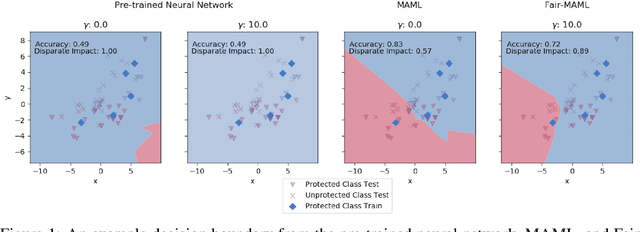
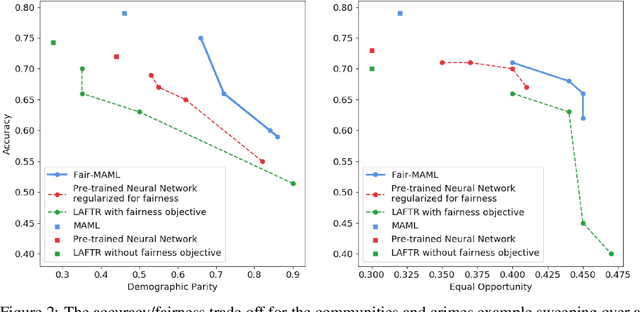
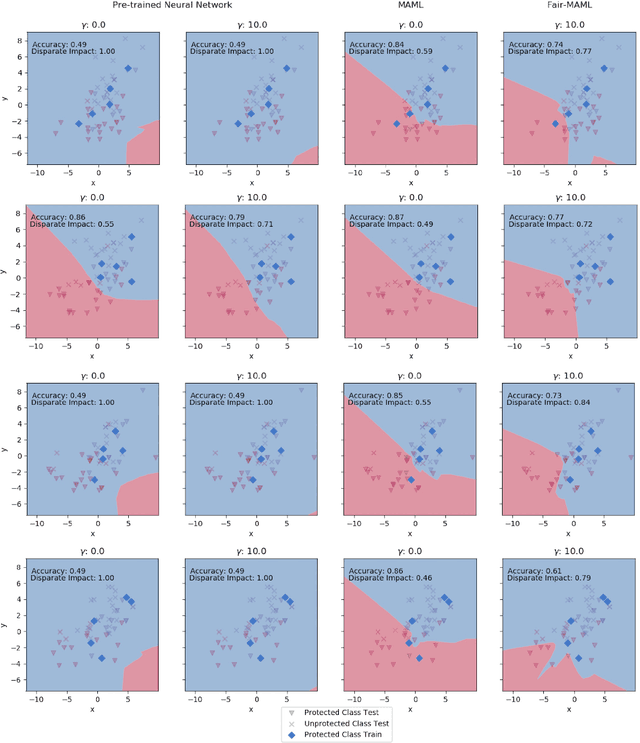
Abstract:Data sets for fairness relevant tasks can lack examples or be biased according to a specific label in a sensitive attribute. We demonstrate the usefulness of weight based meta-learning approaches in such situations. For models that can be trained through gradient descent, we demonstrate that there are some parameter configurations that allow models to be optimized from a few number of gradient steps and with minimal data which are both fair and accurate. To learn such weight sets, we adapt the popular MAML algorithm to Fair-MAML by the inclusion of a fairness regularization term. In practice, Fair-MAML allows practitioners to train fair machine learning models from only a few examples when data from related tasks is available. We empirically exhibit the value of this technique by comparing to relevant baselines.
Fairness Warnings and Fair-MAML: Learning Fairly with Minimal Data
Aug 24, 2019
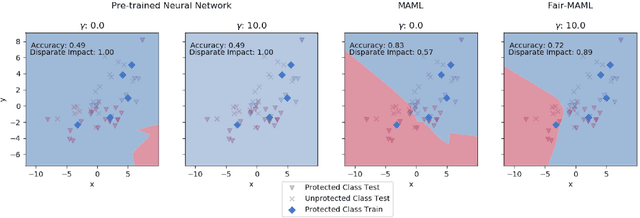
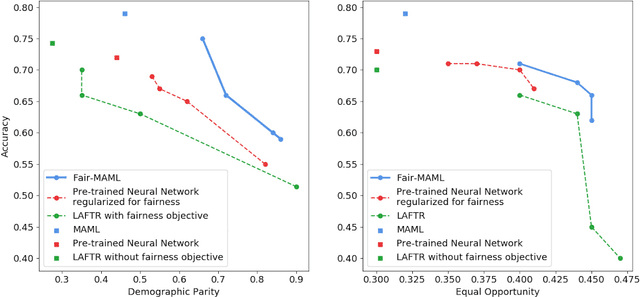

Abstract:In this paper, we advocate for the study of fairness techniques in low data situations. We propose two algorithms Fairness Warnings and Fair-MAML. The first is a model-agnostic algorithm that provides interpretable boundary conditions for when a fairly trained model may not behave fairly on similar but slightly different tasks within a given domain. The second is a fair meta-learning approach to train models that can be trained through gradient descent with the objective of "learning how to learn fairly". This method encodes more general notions of fairness and accuracy into the model so that it can learn new tasks within a domain both quickly and fairly from only a few training points. We demonstrate experimentally the individual utility of each model using relevant baselines for comparison and provide the first experiment to our knowledge of K-shot fairness, i.e. training a fair model on a new task with only K data points. Then, we illustrate the usefulness of both algorithms as a combined method for training models from a few data points on new tasks while using Fairness Warnings as interpretable boundary conditions under which the newly trained model may not be fair.
 Add to Chrome
Add to Chrome Add to Firefox
Add to Firefox Add to Edge
Add to Edge